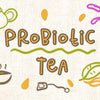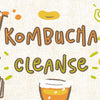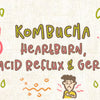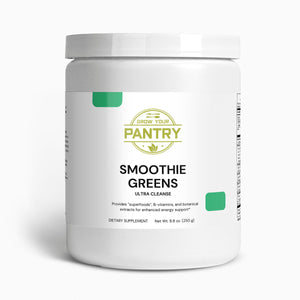How Much Caffeine Is In Kombucha? A Comparative Guide
How much caffeine does kombucha have? The amount of caffeine in kombucha is determined by the concentration of caffeine in the tea used to brew before it undergoes fermentation. The most common commercially available brands have anything from 4-40mg per 8oz (227ml) serving. Generally, about a third of the caffeine in the tea will remain in the kombucha after the fermentation process.
However, the caffeine will vary widely from brew to brew, depending on the recipe used. Commercially bottled kombucha will also have varying amounts of caffeine from one brand to the other.
Not Much Time? Skip To What You'd Like To Learn...
-
How Much Kombucha Is Safe To Drink?
-
Does Kombucha Keep You Awake?
-
What Is Caffeine?
-
How Does Kombucha Compare To Other Common Drinks?
-
What Ingredients Cause Kombucha To Be Caffeinated?
-
Making Decaf Kombucha At Home
-
How Does Caffeine Work?
How Much Kombucha Is Safe To Drink?

The FDA advises that 4oz (110ml) of kombucha is safe to drink. Overconsumption can lead to acidosis, which is caused by the buildup of lactic acid in the bloodstream. You should also keep track of the caffeine and calories you intake per day to avoid adverse effects (link).
Does Kombucha Keep You Awake?

This depends on just how sensitive you are to caffeine. Research has shown that people who are more susceptible to caffeine experience episodes of anxiety leading to sleep deprivation.
What Is Caffeine?

Caffeine is a natural stimulant that's found naturally in plants such as cacao, coffee, and tea. While it wasn't until modern science discovered how caffeine works, humanity has been using this stimulant for thousands of years. There's evidence of tea brewing dating as far back as 2700 BC.
What's the recommended caffeine intake per day?
The FDA recommends that you don't exceed the 400mg per day. According to research, this is the safe limit within which the chances of suffering adverse effects are limited. This is much lower than the amounts present in kombucha. To get to the 400mg limit, you would have to drink up 8 liters (281oz) of kombucha.
Kombucha Caffeine Amounts By Brand
Brand |
Amount of Caffeine per 8oz (227ml) |
GT's Kombucha |
8-14mg |
Synergy Kombucha |
4-7mg |
Humm Kombucha |
14mg |
Brew Dr. Kombucha |
7.5mg |
KeVita Master Brew Kombucha |
40mg |
Caffeine Levels Of Popular Teas
Tea |
Amount of Caffeine per 8oz (227ml) |
Green Tea |
35-70mg |
Black Tea |
60-90mg |
Oolong Tea |
50-75mg |
White Tea |
30-55mg |
Can you substitute the ingredients containing caffeine in kombucha?
While you cannot substitute tea, you can instead use decaffeinated tea. By law, decaf tea should have less than 2.5% of the original caffeine content.
Decaffinated Kombucha Options:
-
Rooibos Kombucha
-
Chicory root kombucha brew
-
Chamomile Kombucha
-
Hibiscus Kombucha
How Does Kombucha Compare To Other Common Drinks?

Popular Drinks |
Amount of Caffeine per 8 oz (227ml) |
Kombucha |
4-40mg |
Starbucks Flat White |
150-170mg |
Breakfast Tea |
42mg |
Coca-Cola Classic |
18.1mg |
Pepsi |
25mg |
Red Bull |
80mg |
Starbucks Coffee
This is much higher compared to the average black tea kombucha. Starbucks is, therefore, more likely to have a more drastic caffeine effect on you compared to kombucha.
Breakfast Tea
A 300ml cup contains 60mg of caffeine compared to just 20mg of caffeine in the kombucha prepared using the same tea.
Coca-Cola Classic
The classic Coke contains 34 mg of caffeine in every 16 Fl oz (470ml) bottle. This is much higher compared to kombucha and can result in more pronounced caffeine-induced activities.
Pepsi
A 12 oz (350ml) bottle of Pepsi contains 37.6mg of caffeine. As a result, Pepsi has a more pronounced caffeine effect on you than consuming a similar amount of kombucha.
Red Bull
Energy drinks contain high amounts of caffeine and calories to keep you energized. Red Bull is one of the highest caffeinated energy drinks available.
What Ingredients Cause Kombucha To Be Caffeinated?

Kombucha gains its caffeine concentration from the brewed tea leaves. As the heat increases, the caffeine molecules are dissolved from the tea into the water.
However, this process only results in a third of the caffeine content getting dissolved. With this, we can then estimate the caffeine we can get from home-brewed kombucha as long as we rely on a single variety of tea per batch.
Caffeine Levels Of Popular Home-Brewed Kombucha Varieties
Homemade Kombucha Made From |
Amount of Caffeine per 8oz (227ml) |
Green Tea |
12-23.3mg |
Black Tea |
20-30mg |
Oolong Tea |
17-25mg |
Making Decaf Kombucha At Home

To make decaf at home, you can either use decaffeinated tea leaves or decaffeinate them before brewing the tea. The other option is to use red tea which is actually from a different herb known as Aspalathus Linearis shrub. This produces a sweet earthy flavor close to that of tea, but without the adverse effects of caffeine as the plant does not produce it.
While there is a lot of controversies online as to whether the following method works, give it a try and see if it works for you, especially if you cannot get your hands on the other caffeine-free alternatives.
It's worth noting that the technique can only lower up to about 30% of the caffeine content in the tea.
Equipment:
-
2 teapots
-
Sieve
Ingredients:
-
3 liters (101 fl oz) of water
-
50 grams of your tea leaves of choice
-
200 grams (1 cup) of sugar
Directions:
1. Add the water into the teapot and start heating.
2. Divide the boiling water into two separate pots. The first one will be for decaffeinating the tea and the next one for brewing the tea.
3. Add the tea leaves into one of the pots and steep for 30 to 60 seconds on high heat in the boiling water.
4. Filter out this first tea infusion, use a sieve for this so that it's much easier to collect the tea leaves.
5. Transfer the sieved tea leaves into the second pot and continue to brew your tea for another 1-2 minutes.
6. Add the sugar and continue stirring until it's completely dissolved into the final product: decaffeinated sweetened tea which can then be used to brew kombucha.
How Does Caffeine Work?

Once the caffeine has been absorbed into your bloodstream, it stimulates the central nervous system, making you more alert and thus avoiding the onset of tiredness.
Caffeine works by binding the adenosine receptors found on nerve cells. Adenosine is the depressant used by the central nervous system to induce sleep and slow down the nerve cells activity. Caffeine molecules have a similar structure to that of adenosine which allows them to bind with the adenosine receptors, thus blocking off adenosine. As a result, the cells remain active without the depressant effects of adenosine, making you more energetic and alert.
Benefits:
-
Improved energy levels
Consuming caffeine leads to blockage of inhibitory neurotransmitter adenosine which leads to an increase in dopamine. Dopamine enhances the firing of neurons, making you more mentally alert as well as improving your mood.
-
Improved physical performance
Caffeine stimulates the entire nervous system leading to increased adrenaline levels. This comes in handy when your body is undergoing strenuous physical activity. Caffeine also signals the fat cells to breakdown stored fat for increased energy supply.
-
Lowers the risk of type 2 diabetes
Increased blood sugar levels characterize type 2 diabetes due to insulin resistance. The increased dopamine and adrenaline levels help in burning the elevated amounts of sugar (link).
-
Antioxidant properties
One of the health benefits of caffeine, is that it has antioxidant characteristics which can help prevent the early onset of Alzheimer's disease as well as heart disease (link).
Disadvantages:
-
Anxiety
Caffeine triggers increased amounts of adrenaline hormone, which leads to increased energy. However, elevated levels of adrenaline lead to the fight or flight response that's characterized by increased anxiety.
-
Insomnia
Your body needs restorative sleep, but when caffeine has been consumed, one can stay awake for longer. In some extreme cases, caffeine can lead to insomnia.
-
Addiction
While the chances of developing caffeine addiction from drinking kombucha are pretty low, it becomes an entirely different case when the level of caffeine drastically increases. Over time your body becomes hooked to this energy drug, and it can be quite tricky to quit caffeine addiction.
-
Fatigue
All that energy that you experience after taking a caffeine drink comes from somewhere and sooner or later; your body will have to rest. As a result, one is more likely to experience fatigue after using caffeine, especially after its effects fade.







